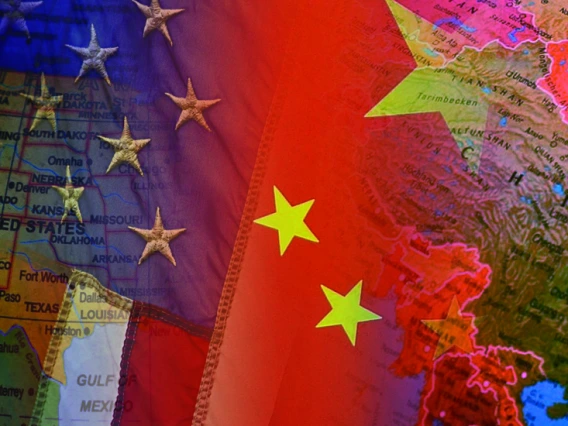
Experts from the Department of East Asian Studies will hold a series of virtual talks this fall centered on tensions between the United States and China and ongoing discrimination against Asian Americans within the U.S.
“Pandemic Blues & Blame Games: Anti-Asian Rhetoric & U.S.-China Antagonism,” featuring presentations from three professors will kick off the series on Oct. 14, with a virtual event starting at 4 p.m.
“We felt like all of a sudden, Asia and particularly China, was coming to the forefront of people’s minds, and not in a positive way. We thought we could use this situation and this interest as a teachable moment, to further the dialogue and engagement about China to a broader public,” says Albert Welter, department head.
The presentations are:
- Different Viruses: Pandemic Politics in US and China
Fabio Lanza, Professor of Modern Chinese History
This presentation explores the politics behind the pandemic, especially the politics of “blaming China” in the United States (and, in part, of blaming the U.S. in China). We will highlight not only the danger inherent in his viral tug-of-war, but also the hidden and deep global connections that this rhetoric obscures.
- Viral Peril: Persistent Fear of Asian Pacific Americans
Brett Esaki, Assistant Professor of Asian Pacific American Studies
Fear of Asians and Pacific Islanders, found domestically and abroad, has been a persistent theme throughout Asian Pacific American history. This presentation will walk through significant moments in US history where the Yellow Peril linked together concerns about disease, morality, civilization, and economic security—and hence will shed light on our present reality.
- Don’t Chat: Impacts of WeChat’s Ban on American Citizens
Hai Ren, Associate Professor of Modern Chinese Culture
What is WeChat? How is WeChat used in China and in the United States? Why is the government trying to ban WeChat? How could the WeChat ban negatively affect millions of Americans, their families, and American companies, as well as the US-China relations?
“There is no better moment than this year to bring a deeper conversation about Asia. What’s happening today, we can think about like a replay of the 19th century, but in the digital age,” Ren says. “All of the anti-Chinese racism, particularly compared to other groups, is about technology and the future, but a similar discourse happened in the 19th century.”
The next event will be a discussion about current events in Hong Kong, on Tuesday, Nov. 17, co-sponsored by the Departments of East Asian Studies and History and Pima Community College.

